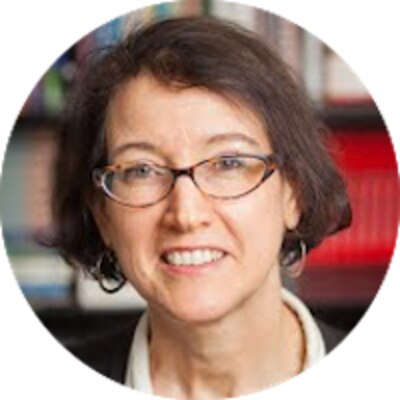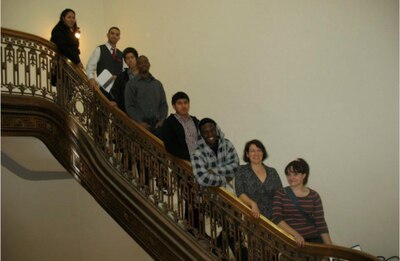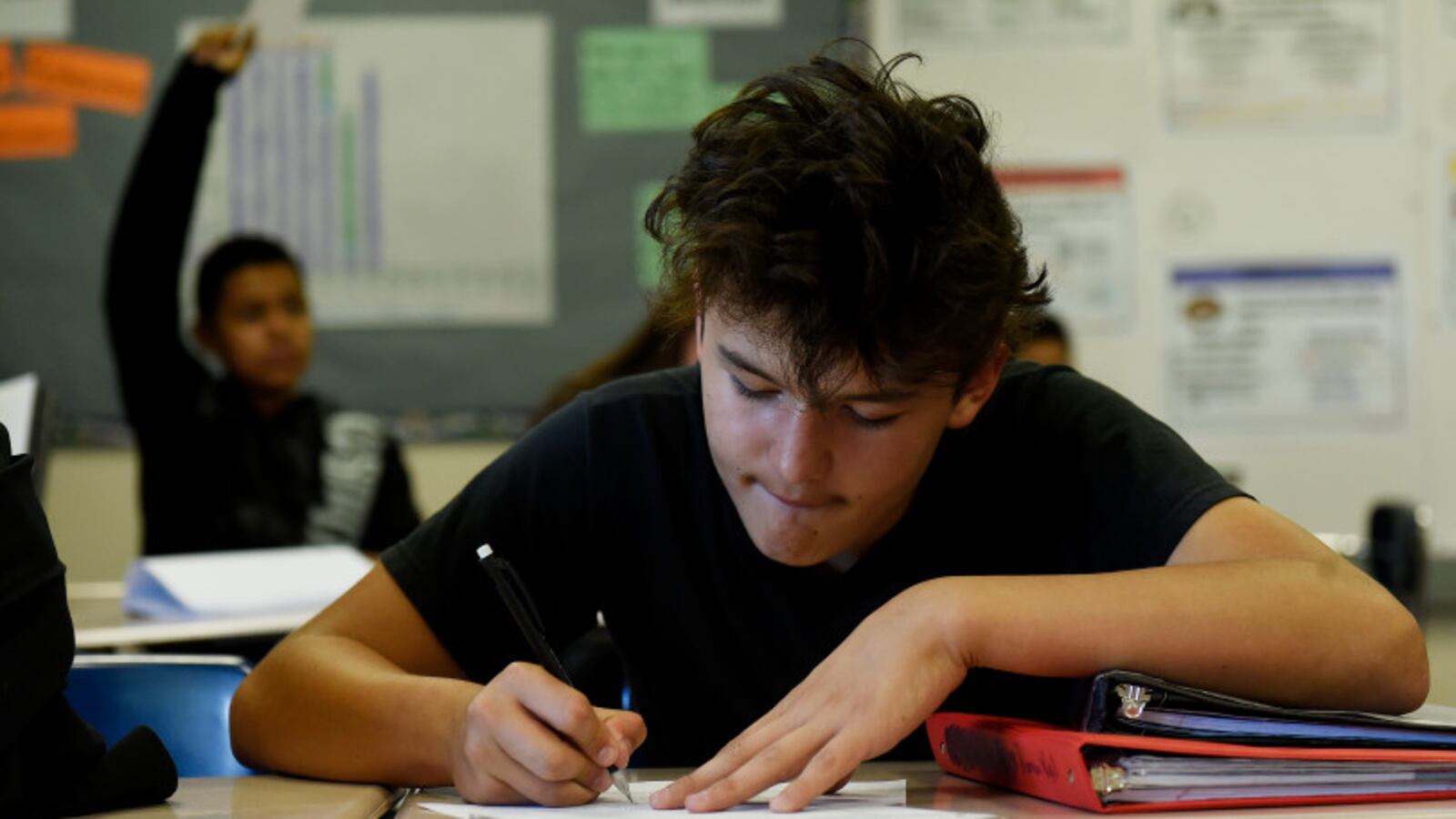It’s a modest proposal: Each middle school in New York City’s District 3 would offer a quarter of its seats to students who haven’t passed state exams. The plan, currently being debated, is supported by many district principals and parents. But not all. One mother said, with great emotion:

“You’re talking about an 11-year-old who worked her butt off and … didn’t get what you needed or wanted. You’re telling them you’re going to go to a school that’s not going to educate you in the same way you’ve been educated. Life sucks! Is that what the DOE wants to say?”
I’m now an instructional coach for the education department, but I spent nearly 30 years teaching in private and public schools in New York City and raised two children here. So I’ve heard similar talk before. And in my experience, statements like that are based on unexamined and frankly wrong assumptions about children, merit, and schools.
The worried mother assumes that higher test scores prove her daughter worked harder, and is thus more deserving, than children with slightly lower scores. In fact, thousands of New York City’s children experience the disappointment of not getting into top schools, even though they’ve worked hard and are smart and talented. But their parents don’t have money for tutoring, time to go on school tours during the work day, or the connections or ZIP code to successfully target selective middle schools which feed into selective high schools.
The fact that parents at that meeting mentioned spending $5,000 on tutoring so that their children can “earn” a seat in a highly screened school underscores that point. What is it that children of wealthy parents have earned that kids who score a level 2 on the state exam with no extra help have not?
Another assumption is about schools. We give enormous credit to schools whose students arrived there already reading at grade level. But that doesn’t say anything about the quality of teaching or outcomes. The mother’s certainty that any school but their top choice “won’t educate you in the way you’ve been educated” raises many questions.
I taught for years in an unscreened middle and high school, which means most of my students had scored 1 or 2 on the state exams. In spite of this apparently dire situation, we had graduation and college acceptance rates over 90 percent. Students went to Barnard, Cornell, Colby, Bates, and many other schools that were good fits for them, because we prioritized college counseling and strong advisory relationships.
I took seniors to Washington, D.C., to lobby their Congress members about the Patriot Act. (The students led the meetings, and one senator’s staffer confessed to knowing less about the Bill of Rights than my students.) All of this was invisible to many parents who reduced the entire human enterprise to a judgment based on how many students scored above a 2 on the state exams.

Another parent asked whether his son’s teachers will get extra help if students with lower scores are admitted. I am always in favor of resources and support for teachers! But the implication that kids who aren’t passing exams will be disruptive elements or fundamentally different than his son is also misguided. I can tell you absolutely that students who score highly on state exams can be just as challenging and difficult in the classroom as those who score below grade level.
It is true that when schools are filled entirely with children who are very poor, the school will likely need additional resources and strong leadership to be effective. Adversity, poverty, and unstable housing all create conditions that can get in the way of optimal learning. But 25 percent of children scoring below a 3 on state exams is not that.
I understand how emotional this process can be. I’ve gone through the process with my children, and even broke out in shingles the first time we went through the high school admissions process.
When my oldest son turned five in 1997, we were zoned for P.S. 321 in Park Slope — then, as now, a school people forge address paperwork to get into. Instead I sent him to Brooklyn New School because it had then a structural guarantee of integration: an admissions lottery to result in one-third Latinx, one-third black, and one-third white and other students. I’d taught in schools with few students of color and seen the heavy burden of representation they had to carry. The world, and New York City, is not majority white, and I wanted them to live in reality, not in an constructed enclave.
I then began teaching at Brooklyn New School and at the Brooklyn School for Collaborative Studies, the 6-12 school in the same building. My son moved up to BCS; like most unscreened secondary schools, it was poorer and had more black and brown students than his elementary school had. My son loved his years at BCS, and I loved teaching there.
Wrapped up in the talk of scores and hard work and other kids taking “our” kids’ seats is the unspoken content of those parents’ objections: race. Many white parents are uncomfortable being in the minority, even though they absolutely are a minority in New York City’s public schools. If we can’t talk about that, we can’t ever talk about diversity honestly. And that means we can’t really talk about admissions policies and test scores, either, because they serve as proxies for racial inequities.
Let’s be clear: state exams don’t assess character or intellectual potential. One of my sons can get a top score with little effort. The other gets no love from standardized tests. They both, just like all New York City children, deserve access to the opportunities a real city offers, vibrant and mixed and full of all kinds of interconnected, talented human beings.
Public schools are a collective good; we must ensure that the benefits are shared equitably.
Vicki Madden is an instructional coach for New York City schools and a committed New Yorker who has taught English and history since 1985.
Find all of Chalkbeat’s coverage of the District 3 desegregation debate here. Stay up to date by signing up for our daily newsletter.
About our First Person series:
First Person is where Chalkbeat features personal essays by educators, students, parents, and others trying to improve public education. Read our submission guidelines here.


